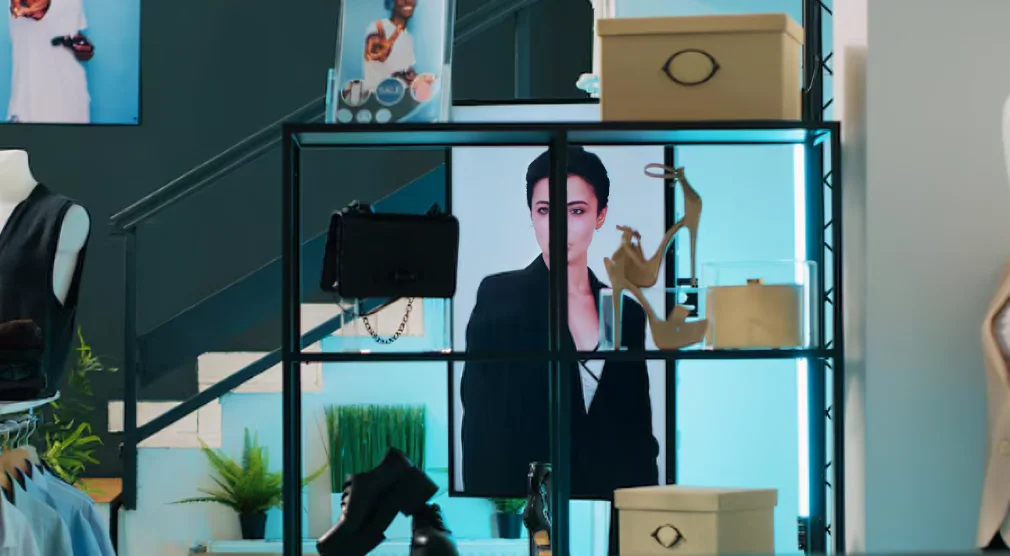The world of fashion is constantly evolving, and emerging luxury designer brands are setting new standards for creativity and exclusivity. Unlike established fashion houses, these new players combine modern aesthetics, sustainability, and innovation to attract discerning consumers. As the luxury market shifts toward unique storytelling and authentic craftsmanship, emerging luxury designer brands are becoming the future of high-end fashion.
Luxury today is no longer just about iconic names; it’s about brands that embody values, cultural depth, and individuality. In this article, we will explore the most promising labels making waves, their distinctive features, and why fashion enthusiasts should keep an eye on them.
The Rise of Emerging Luxury Designer Brands

In recent years, consumer demand has shifted from mass luxury toward niche, exclusive collections. Buyers are no longer impressed by logos alone. Instead, they seek originality, limited editions, and sustainable practices. This growing preference has opened the door for talented designers who bring fresh perspectives to the global stage.
Emerging luxury designer brands thrive because they often:
-
Prioritize craftsmanship over mass production.
-
Embrace eco-conscious production methods.
-
Value authenticity and heritage.
-
Offer exclusive experiences that resonate with modern consumers.
As a result, these brands consistently capture the attention of fashion editors, stylists, and international buyers.
Characteristics That Define Emerging Luxury Designer Brands
Craftsmanship and Authenticity
At the heart of every successful luxury label lies impeccable craftsmanship. Emerging luxury designer brands emphasize artisanal details, rare textiles, and time-intensive production. This commitment not only guarantees exclusivity but also builds trust with a clientele seeking authenticity.
Innovation and Creativity
Emerging designers often push creative boundaries. They experiment with unexpected cuts, reinvent traditional fabrics, and challenge gender norms. Their forward-thinking designs ensure they remain relevant in a fast-paced market where trends shift quickly.
Sustainability as a Core Value
Sustainability is no longer optional—it’s essential. Many new luxury labels integrate eco-friendly dyes, recycled fabrics, and transparent supply chains into their ethos. By doing so, they align with the values of conscious consumers who demand accountability.
Storytelling and Exclusivity
Fashion is more than clothing—it’s an emotional journey. Emerging luxury designer brands excel at weaving storytelling into their collections. Whether inspired by cultural heritage, personal journeys, or global issues, these stories foster emotional connections with consumers who crave more than just style.
Top Emerging Luxury Designer Brands to Watch

1. The Row
Founded by Mary-Kate and Ashley Olsen, The Row has redefined minimalism. Known for tailored precision, understated elegance, and luxurious fabrics, the brand proves that sophistication lies in simplicity. The Row caters to a clientele that values quiet luxury—an aesthetic that prioritizes timelessness over trends.
2. Khaite
Khaite, based in New York, perfectly balances strength and softness. Its feminine yet structured collections showcase everything from perfectly cut denim to luxurious cashmere knits. Khaite has become a go-to label for celebrities seeking elegance without compromise.
3. Peter Do
Peter Do, once a designer for Celine, has built his brand around sharp tailoring and wearable modernism. His collections emphasize clean lines, architectural cuts, and elevated essentials. Peter Do resonates with the modern professional who desires fashion that transitions seamlessly from day to night.
4. Coperni
Coperni is one of Paris’s most talked-about rising labels. By merging technology and fashion, Coperni challenges the very definition of luxury. Its viral spray-on dress worn by Bella Hadid and glass handbags have positioned the brand as a symbol of futuristic luxury.
5. Bode
Bode takes menswear in a new direction by prioritizing heritage and storytelling. Using antique textiles and artisanal craft techniques, Bode garments often feel like wearable works of history. Each piece carries its own narrative, making it highly desirable to collectors.
6. Nensi Dojaka
Winner of the LVMH Prize, Nensi Dojaka is renowned for her delicate dresses featuring sheer fabrics, cutouts, and bold femininity. Celebrities and fashion editors alike adore her work, which blends sensuality with sophistication.
7. Marine Serre
Marine Serre has become famous for her crescent moon motif and eco-conscious vision. Her collections merge sportswear, couture influences, and upcycling, reflecting a futuristic yet responsible approach to fashion. She is a leader in sustainable luxury.
8. Wales Bonner
Grace Wales Bonner’s designs bridge European tailoring and African heritage. Her brand explores identity, culture, and intellectual depth. By combining academic research with striking fashion, Wales Bonner stands out as one of the most intellectually driven luxury brands.
9. Fear of God
Jerry Lorenzo’s Fear of God brings streetwear and luxury together. Known for oversized silhouettes, premium materials, and versatile essentials, the brand appeals to a younger audience that values both comfort and exclusivity.
10. Rotate Birger Christensen
Based in Copenhagen, Rotate is redefining eveningwear for the modern generation. Its vibrant colors, bold silhouettes, and accessible luxury aesthetic have made it a favorite among trendsetters seeking statement pieces.
Why Emerging Luxury Designer Brands Matter
Emerging labels are not just trends; in fact, they are shaping the future of the fashion industry in profound ways. Moreover, they bring forward ideas that go beyond style and aesthetics. They highlight several key elements:
-
Sustainability: Greater accountability and eco-friendly production. Consequently, consumers feel more confident in their purchases.
-
Cultural Influence: Merging traditional heritage with modern aesthetics. For example, many designers incorporate personal or regional narratives.
-
Exclusivity: Limited production runs that retain value over time. As a result, pieces become highly collectible.
-
Consumer Empowerment: Buyers feel they are part of a movement rather than a mass market. Similarly, these labels foster strong communities of supporters.
Therefore, these elements position emerging luxury brands as powerful disruptors of an industry that once revolved around a handful of household names. In addition, they are challenging the notion that luxury must always come from legacy houses. Ultimately, they are redefining what it means to belong to the world of high-end fashion.
How to Identify the Next Big Luxury Designer Brand

For fashion enthusiasts, investors, and collectors, spotting the next big brand requires careful observation. First of all, keep in mind that visibility in media is a strong indicator. For instance, frequent mentions in top magazines like Vogue or Harper’s Bazaar show growing recognition. Additionally, celebrity endorsements and red-carpet appearances signal credibility and desirability.
Furthermore, collaborations with established fashion houses or artists demonstrate that a brand is gaining influence. In the same way, a powerful digital presence, where storytelling meets community building, reflects long-term relevance. However, not all visibility guarantees lasting success; careful analysis is still required. Likewise, it is important to consider how a brand sustains consumer engagement over time.
Consequently, when you notice these combined signals, you can assume the brand is on the brink of becoming a global powerhouse. In conclusion, emerging luxury designer brands are worth watching closely because they not only reflect current trends but also ultimately set the direction for the future of high-end fashion.
FAQs
What defines an emerging luxury designer brand?
An emerging luxury designer brand is a relatively new label that prioritizes craftsmanship, exclusivity, innovation, and sustainability, making it distinct from mainstream luxury.
Why should I follow emerging luxury designer brands?
They bring fresh ideas, cultural depth, and unique designs to the market, ensuring consumers have access to limited and meaningful fashion pieces.
Are emerging luxury designer brands sustainable?
Many of them are. Sustainability is central to their identity, making them leaders in eco-conscious luxury fashion.
Do emerging luxury designer brands hold value?
Yes. Their limited runs and exclusivity often make them collectible, with some pieces appreciating in value over time.
Which regions are driving emerging luxury fashion?
While Europe remains central, New York, Copenhagen, Tokyo, and Seoul have emerged as hubs for creative luxury labels.
Conclusion
The future of luxury fashion is being redefined by designers who are unafraid to challenge convention. Moreover, emerging luxury designer brands combine authenticity, innovation, and sustainability with an emphasis on cultural storytelling. For example, from Khaite’s refined minimalism to Coperni’s tech-driven experiments, these labels embody the future of exclusivity.
In fact, they represent a new generation of fashion pioneers who are shaping global trends. Furthermore, they inspire consumers to seek meaning beyond logos. At the same time, they challenge established houses to innovate. Consequently, the industry is witnessing a powerful shift toward individuality and conscious luxury.
Nevertheless, this transformation does not abandon tradition; instead, it fuses heritage with modern creativity. Similarly, brands across regions are embracing sustainability as a permanent value. Therefore, consumers who invest in these designers enjoy both exclusivity and ethical reassurance.
Above all, these brands prove that fashion can be luxurious and responsible. On the other hand, ignoring them means missing the future of high-end fashion. Thus, emerging designers should not only be admired but also supported. Furthermore, their influence extends far beyond seasonal trends. In fact, their vision has already begun to shape global style.
Consequently, the boundaries between tradition and innovation are being redefined. Meanwhile, consumers are embracing these changes with enthusiasm. Nevertheless, the challenge for established fashion houses is to keep up with the pace of transformation.
Ultimately, for consumers seeking individuality, eco-conscious craftsmanship, and modern elegance, following these brands is both rewarding and essential. Overall, the fashion industry is in a transformative era, and emerging luxury designer brands are leading the way with vision, creativity, and purpose.

